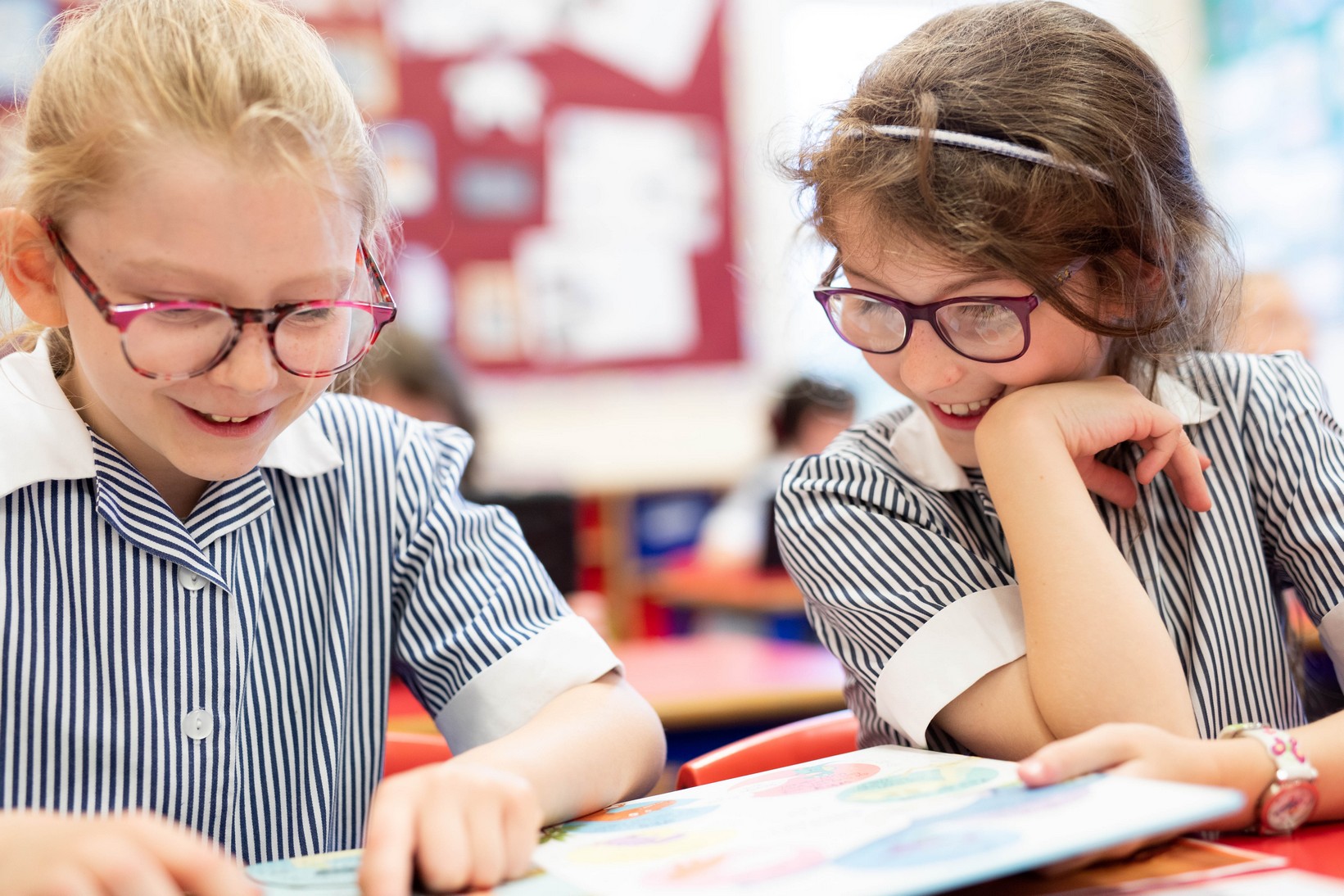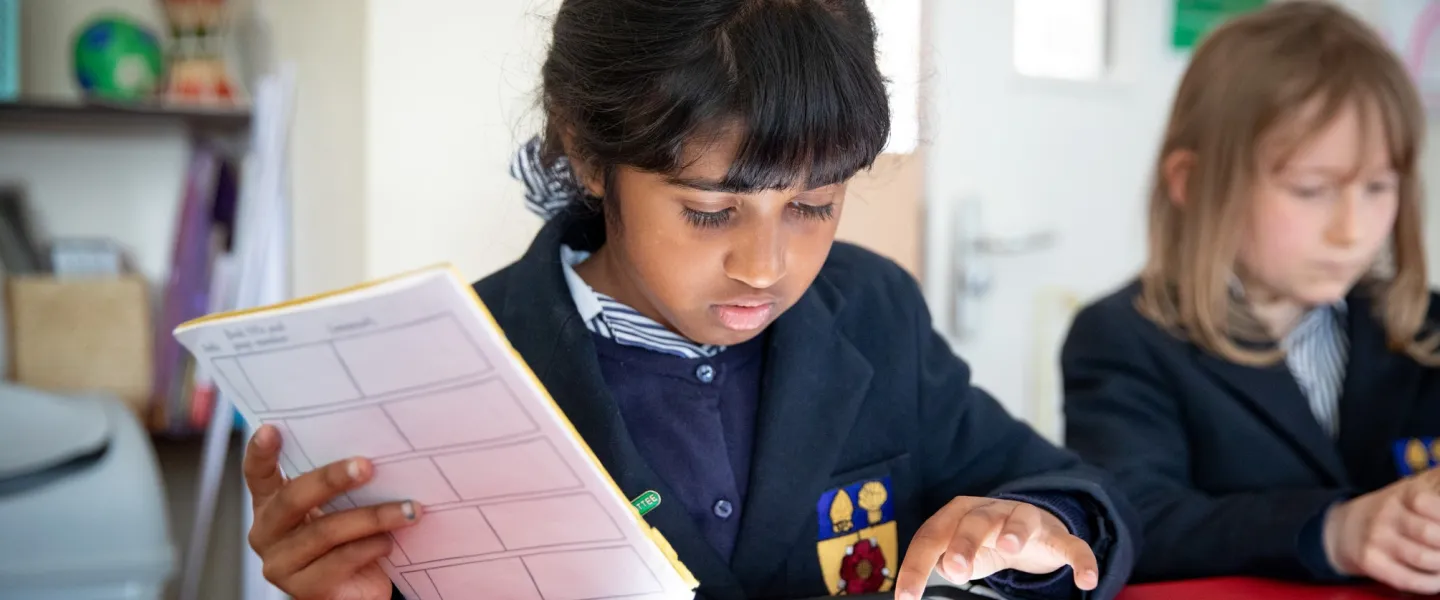Critical Thinking
From the earliest years, girls are introduced to 'critical thinking'. Through specific lessons the children are encouraged to ask questions and engage in dialogue with other to solve problems, often in 'team' situations. Teaching in this way enables even very small children to think big. Offering opportunities to allow children to think critically and apply reasoning improves scores in literacy, speaking and listening, and maths tests. It has a positive impact on emotional wellness and self-belief.
Education is not the learning of facts, but the training of the mind to think.
Albert Einstein
The benefits of 'critical thinking' with children and young people go further. It calls on imagination and reasoning and puts these capacities to work exploring values, assumptions and vital concepts like justice, truth, knowledge and beauty. Children become reasonable in both senses of the word - they are adept at reasoning and they are open to the reasoning of others.
Critical thinking realises the potential that individual pupils have of being self-directed and capable of rigorous and original thought. We want our girls to be creative thinkers, not exam-passing automatons.
Science, Technology, Engineering and Maths - STEM
Although our subject-specific teaching does not start until Key Stage 2, the principles of good science are driven home from the moment our pupils arrive in Reception. The girls cannot wait to get started with the dynamic learning involved in primary science; sorting and ordering, labelling and measuring, noticing and estimating. They love working in teams and especially enjoy the fact that it can be messy and fun and is easy to relate to the world around them.
It is through firing their imagination at this young age that we teach the girls that science is relevant, exciting, stimulating and lots of fun, something which we know stays with them into Senior School where more than half take a STEM subject as an A-level.

Setting
The children are placed in sets for mathematics from Year 3 onwards to enable each girl to be taught at a level appropriate to her ability in this vital area of the curriculum. Other subjects are taught within the mixed-ability classes.
Planning for different strengths and abilities lies at the heart of our teaching ethos at the Lower School. Respect and understanding for individual learning styles is key. Staff aim to ignite a love of learning and offer inclusive access to the curriculum for all pupils by knowing individual pupils well. Differentiation, challenge, pace, stretch, support and fun combine to enable lessons that are stimulating and show progress and understanding.

Homework
Reception and Key Stage One pupils receive one homework activity each weekend, in addition to the expectation of daily reading. Homework may have literacy or mathematical focus which builds on prior learning. Alternatively, homework can be set to help prepare for the forthcoming week or particular theme of work. Pupils in Years 1 and Year 2 receive weekly spelling lists to learn.
Year 3 pupils are given homework on three nights each week, Year 4 have four 30-minute pieces of homework per week and Years 5 and 6 have homework each evening (maximum one hour).
We expect girls to read each night with a suitable type of book being selected once the teacher has had a chance to identify your daughter’s appropriate level. We encourage parents to listen to their daughter reading as well as taking the opportunity to read out loud to them. The Reading Record forms a crucial part of the Infant and Junior Department Planner and there is an expectation that this is signed by parents each evening.
More able and talented pupils
A Challenge and Enrichment Programme is available to help stretch and challenge particularly gifted and talented pupils, whilst the curriculum for all pupils is enriched by school trips, visiting speakers and artists, talks by authors and other activities planned throughout the academic year.
Quality-first teaching is every practitioner's priority, with lessons differentiated according to pupil ability and expectation. Extension opportunities are provided daily to challenge and extend all pupils, encouraging them to collaborate, question and problem solve.
